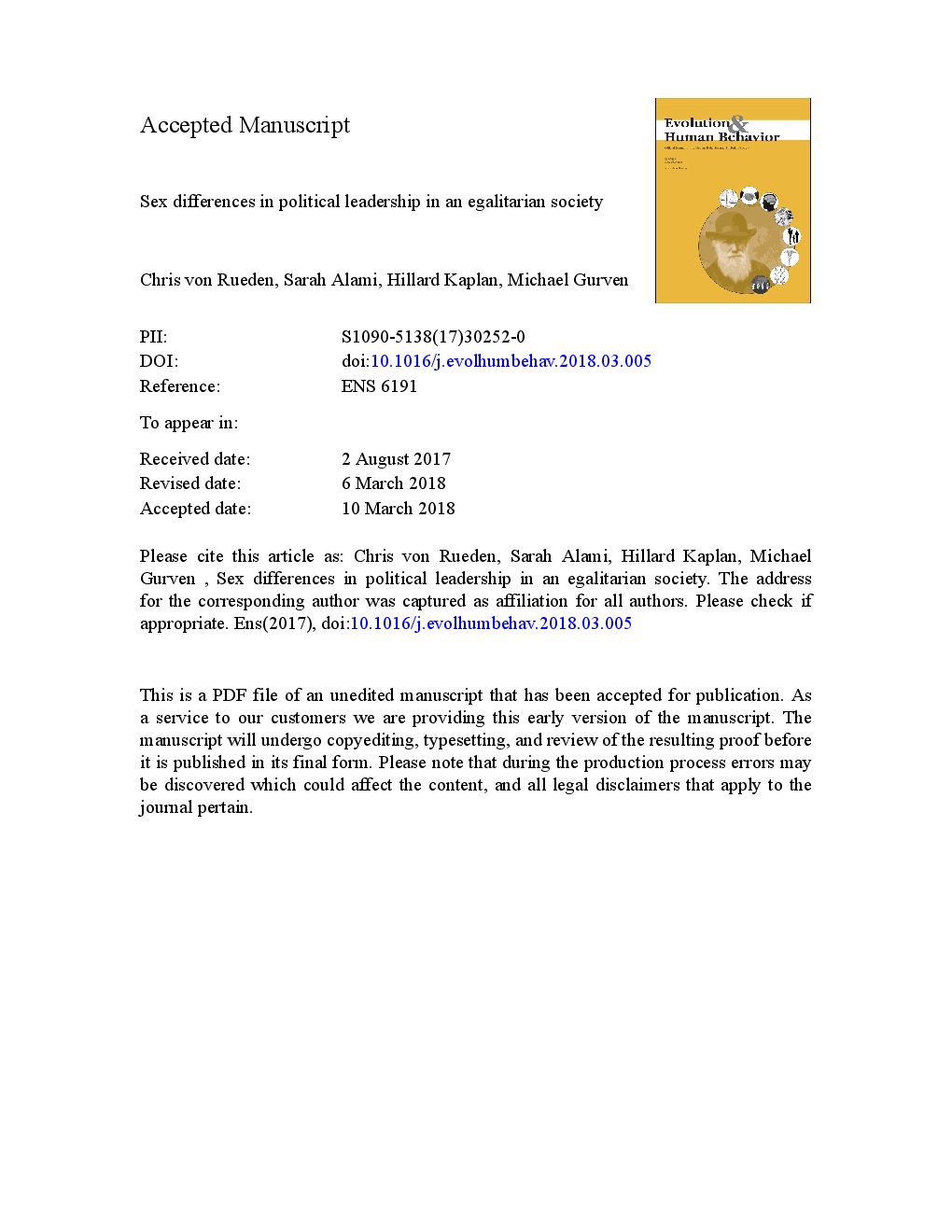ترجمه فارسی عنوان مقاله
تفاوت جنسیتی در رهبری سیاسی در یک جامعه مسوولانه
عنوان انگلیسی
Sex differences in political leadership in an egalitarian society
| کد مقاله | سال انتشار | تعداد صفحات مقاله انگلیسی |
|---|---|---|
| 103808 | 2018 | 31 صفحه PDF |
منبع

Publisher : Elsevier - Science Direct (الزویر - ساینس دایرکت)
Journal : Evolution and Human Behavior, Available online 10 March 2018
ترجمه کلمات کلیدی
رهبری، تفاوت های جنسی، همکاری، رقابت، انتخاب جنسی، تقسیم کار،
کلمات کلیدی انگلیسی
Leadership; Sex differences; Cooperation; Competition; Sexual selection; Division of labor;
ترجمه چکیده
ما سهم اختلافات جنسی در توانایی فیزیکی، آموزش و همکاری را در دستیابی به رهبری سیاسی در یک جامعه کوچک می سنجیم. در میان کشاورزان آمازون بولیوی، ما دریافتیم که مردان احتمال بیشتری دارند که اشکال مختلف رهبری سیاسی را شامل می شوند، از جمله نفوذ کلامی در جلسات جامعه، هماهنگی پروژه های جامعه و حل اختلافات. ما نشان می دهیم که این تفاوت ها در رهبری نه به دلیل جنس مربوطه بلکه به تعداد بیشتری از همکاران مردان، دسترسی بیشتر به تحصیل و افزایش اندازه بدن و قدرت فیزیکی است. مزیت مردان در تعداد شریک های همکاری با مشارکت آنها در گروه های بزرگتر و هزینه های فرصت های کار داخلی در داخل زنان وابسته است. ما استدلال می کنیم که این نتایج تأثیر متقابل انتخاب جنسیت و تقسیم جنسی از کار را در شکل دادن به چگونگی دست یافتن به رهبری زنان و مردان برجسته می کند.

